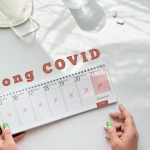Anxiety affects millions, manifesting through various symptoms that can disrupt daily life. Finding effective ways to manage anxiety is crucial for maintaining mental health and improving overall well-being. With the right strategies in place, anyone grappling with anxiety can navigate their feelings and regain control.
In this blog post, readers will discover ten actionable techniques for managing anxiety. These approaches are grounded in evidence and can make a noticeable difference in handling anxiety disorders, helping individuals to cope and thrive in challenging situations. By implementing these strategies, they can work toward a more balanced emotional state.
Understanding Anxiety and Its Effects
Anxiety is a common mental health issue that affects many individuals. Its symptoms can disrupt daily life and may lead to more serious conditions if not addressed. Recognizing these symptoms and understanding the specific disorders associated with anxiety can help individuals seek appropriate treatment.
Identifying Symptoms and Triggers
Anxiety manifests through various symptoms, including:
- Increased heart rate
- Sweating
- Fatigue
- Irritability
- Difficulty concentrating
Triggers can vary widely. For some, it may be stress from work or personal relationships. For others, it could stem from specific situations, such as public speaking or social interactions. Understanding personal triggers is crucial to managing anxiety effectively.
Identifying patterns in symptoms can aid in anticipating anxiety episodes. Paying attention to thoughts and physical reactions during stressful moments can enhance self-awareness, enabling proactive coping strategies.
Exploring Anxiety Disorders
Anxiety disorders encompass a range of conditions, such as generalized anxiety disorder, panic disorder, and social anxiety disorder. These disorders can severely impact an individual’s mental health and quality of life.
Panic attacks are particularly intense episodes of fear accompanied by physical reactions, like shortness of breath or chest pain. Recognizing this disorder is essential for proper treatment.
Therapy options, including cognitive-behavioral therapy (CBT), can be effective. Working with a mental health professional, such as a psychiatrist or therapist, can help individuals understand their anxiety better and develop practical coping mechanisms.
Lifestyle Modifications for Anxiety Management
Making specific lifestyle changes can significantly impact anxiety management. A consistent routine, balanced diet, and regular exercise are essential components that contribute to better mental well-being.
Creating a Healthy Routine
Establishing a daily routine provides a sense of stability. When individuals wake up and go to bed at the same time, it helps regulate their body’s internal clock, improving sleep quality. Prioritizing sleep can enhance mood and reduce anxiety symptoms.
Incorporating relaxation techniques into the routine can also be beneficial. Mindfulness practices, such as meditation or deep-breathing exercises, can lower stress levels and promote calmness. Scheduling regular breaks throughout the day can mitigate feelings of overwhelm and maintain focus.
The Role of Diet and Exercise
A well-balanced diet plays a crucial role in anxiety management. Foods rich in omega-3 fatty acids, such as salmon and walnuts, may help reduce anxiety levels. Additionally, a diet high in fruits, vegetables, and whole grains supports overall brain health.
Regular exercise is equally important. Engaging in physical activity releases endorphins, which can improve mood and decrease stress. Activities such as jogging, yoga, or even brisk walking can make a difference.
It is advisable to limit caffeine intake, as excessive consumption can exacerbate anxiety. Drinking herbal teas or water can serve as healthier alternatives. Combining these dietary choices with regular exercise can significantly enhance one’s ability to manage anxiety effectively.
Professional and Therapeutic Interventions
Addressing anxiety often requires support from mental health professionals and therapeutic approaches. Engaging in therapy or medication can offer effective relief for many individuals coping with anxiety.
Seeking Support from Mental Health Professionals
Consulting a mental health professional is crucial for personalized anxiety management. They can provide valuable insights and tailored strategies.
Individuals may choose to see a psychologist or licensed therapist who specializes in anxiety disorders. These professionals employ techniques such as cognitive-behavioral therapy (CBT) to reshape negative thought patterns.
Regularly scheduled sessions create a safe space for patients to express their feelings and gain coping skills. It is advisable to research and choose a therapist whose approach aligns with individual needs. Building rapport with a mental health professional can significantly enhance therapeutic outcomes.
Incorporating Therapy and Medication
Therapy alone may not be sufficient for everyone. In some cases, individuals may benefit from medication prescribed by a qualified psychiatrist.
Medications like selective serotonin reuptake inhibitors (SSRIs) can alleviate anxiety symptoms and improve overall functioning. It is essential for individuals to discuss potential side effects and interactions with their doctor.
Combining therapy with medication often yields the most effective results. Group therapy or support groups can provide additional support by connecting individuals with similar experiences. This dual approach fosters comprehensive mental health care, addressing both emotional and biological aspects of anxiety.
Self-Help Techniques and Coping Skills
Individuals can implement effective self-help techniques and coping skills to manage anxiety. These strategies focus on building personal resilience and enhancing mental health through controlled practices.
Developing Coping Mechanisms
Coping mechanisms are essential tools for managing stress and anxiety. They enable individuals to respond to anxiety-provoking situations with greater control. Specific examples include:
- Deep Breathing: This technique can calm the nervous system by encouraging relaxation. Individuals can practice inhaling deeply through the nose, holding for a few seconds, and exhaling slowly.
- Progressive Muscle Relaxation: This involves tensing and then relaxing different muscle groups. It helps to identify and release physical tension associated with stress.
- Journaling: Writing about thoughts and feelings can provide clarity. It serves as a release and can help individuals recognize patterns and triggers related to anxiety.
Establishing these coping skills fosters a sense of control, which is critical in reducing anxiety levels.
Meditation and Mindfulness Practices
Meditation and mindfulness can significantly reduce anxiety and promote mental well-being. These practices encourage individuals to focus on the present moment, providing relief from anxious thoughts.
- Mindfulness Meditation: This practice involves paying attention to thoughts and feelings without judgment. It can be practiced through guided sessions or solo, emphasizing awareness and acceptance.
- Body Scan Meditation: This technique highlights sensations throughout the body. It helps individuals connect with their physical state and encourages relaxation.
- Breath Awareness: Focusing solely on breathing creates a calming effect on the mind. Setting aside a few minutes each day for this practice can lead to improved emotional resilience.
Incorporating meditation and mindfulness into a daily routine can effectively manage anxiety and enhance overall mental health.




